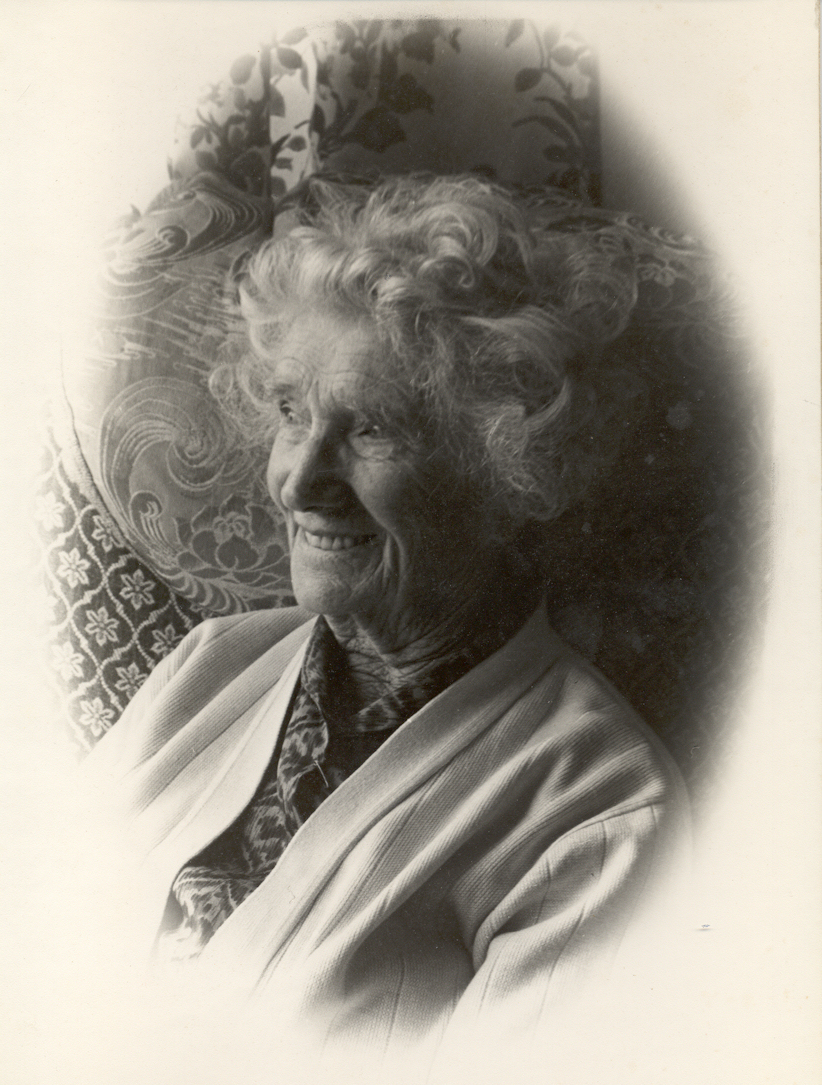 For quite a few years I’ve puzzled over why I am unable to find my maternal grandmother, Florence Elizabeth Coker (pictured right in 1972, about a year before her death aged 88) on the 1911 census. At the time of the census she was 27 and still single (she married a couple of years later and my mother was born in 1915). She was known at that time to be living with her mother and three brothers in the East End of London where she worked in her mother’s tailoring business.
For quite a few years I’ve puzzled over why I am unable to find my maternal grandmother, Florence Elizabeth Coker (pictured right in 1972, about a year before her death aged 88) on the 1911 census. At the time of the census she was 27 and still single (she married a couple of years later and my mother was born in 1915). She was known at that time to be living with her mother and three brothers in the East End of London where she worked in her mother’s tailoring business.
Her mother (my great-grandmother) is on the census with her three sons, one of whom completes and signs the census return. My great-grandfather is known to have left his wife and is on the 1911 census living about half a mile away with another woman, her two sons (by her husband) and a 6-month-old girl who appears to have bee sired by my great-grandfather. [That is a story for another day!]
But where is Flo? She isn’t with either of her parents. Indeed I have been totally unable to find any trace of her anywhere in the country. Was she abroad? I think that’s unlikely, although I can’t rule it out.
It so happens I’m a member of London Historians, and their latest newsletter (February 2018) has an article by Anne Carwardine, a specialist on suffragette history – well this is the centenary of the first round of female suffrage. In it I found the following paragraph:
Census Night
Despite Black Friday, the WSPU maintained a truce for much of 1910 and 1911, hopeful that legislation giving women the vote would soon be passed. In April 1911, the census provided them with an opportunity for peaceful protest. There were two main options – resist (by refusing to provide information) or evade (by staying away from home at midnight, so that you would not be counted). The largest organised evasion took place in central London. Late on the evening of April 1st, small groups of women walked through the streets and converged on Trafalgar Square. A crowd gathered to watch them, although on this occasion the atmosphere was friendly, with plenty of cheers and laughter. After Big Ben had struck twelve, many of the suffragettes headed eastwards, singing “Let’s All Go Down the Strand”. The Rinkeries, a roller skating rink on the Aldwych, was kept open all night for census protestors and several hundred women (together with a few men) skated through the night, accompanied by a band. There was also entertainment – Ethel Smyth conducted the March of the Women, WSPU leaders made speeches and well-known actresses read suffrage poems. Refreshments were available in the nearby Gardenia Restaurant, where suffragettes acted as waitresses for the night. Early the next morning, the skaters headed wearily home, having achieved the publicity they wanted.
Dutifully I have checked a number of other sources and this scenario appears to be correct – indeed it is much more complex than this one paragraph outlines.
This is something of which I was totally unaware!
Now I don’t remember ever hearing my grandmother (who died when I was a student), or my mother, speak about suffrage, votes for women or anything of the sort. Indeed before she died I had told my mother about the mystery of Flo missing from the census and she was as puzzled as I. But here we have a possible explanation. Could she have been one of the partying suffragettes who were deliberately not at home at midnight and hence could truthfully not be counted. Or was Flo one of those who refused to allow her name to be put on the census form (which would have been illegal), a wish which was accepted by her brother who completed the form.
I am never likely to know for certain. But, despite how little I knew my grandmother, I suspect this could well be the answer. It would not have been entirely out of character.
And we think we live in interesting times!
